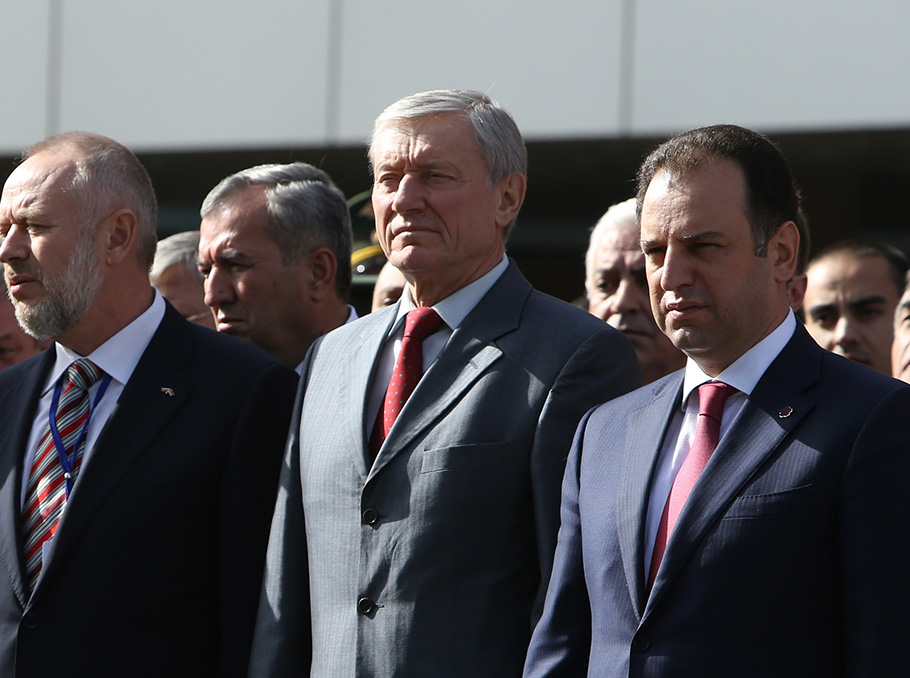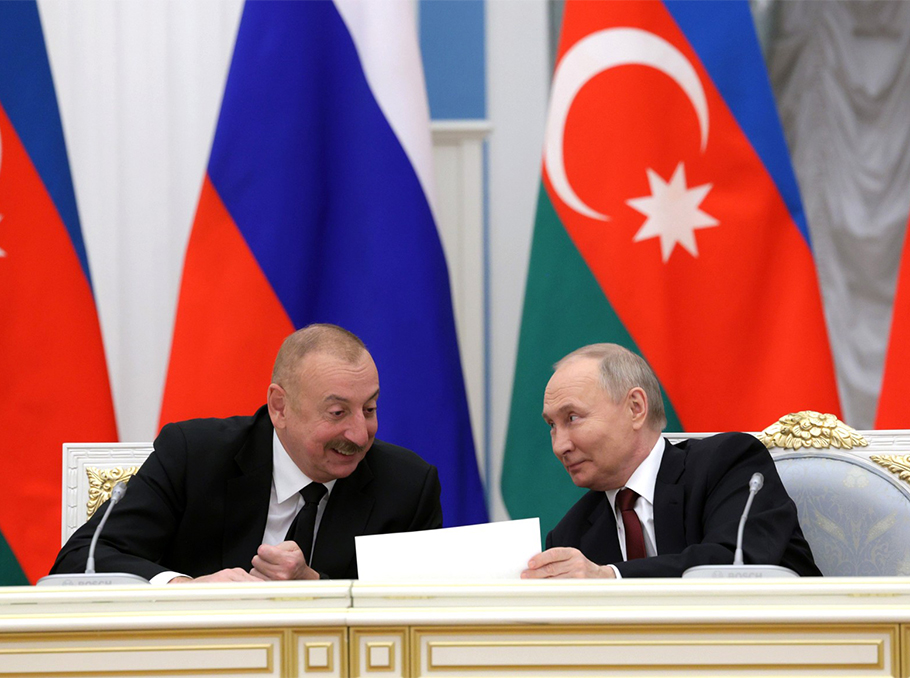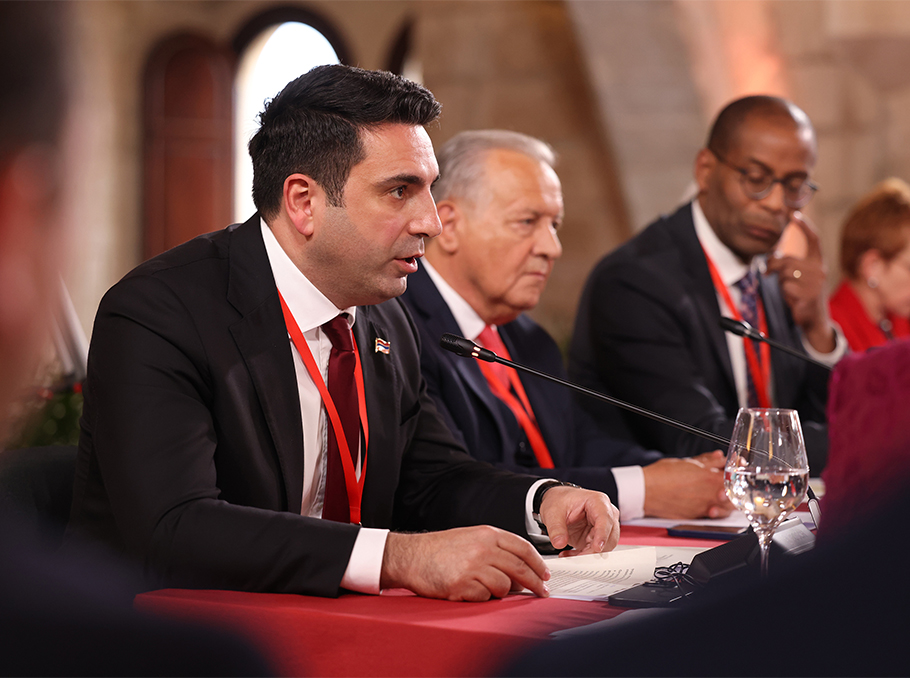Armenian Minister of Defense has delivered a speech at the VII Moscow Conference on International Security on April 4, 2018.
Mediamax offers you the key fragments from the minister’s speech.
On global security and a polycentric world
The relevance of the topic of our conference, “Global security in polycentric world”, shines through the fact that every word, every term in the title of our meeting carries the mark of transformation, deep modification.
The world “global” used to mean “comprehensive, universal”, but today we can apply it to any regional phenomenon or process that reflects directly on the entire world. “Global” local terror act in Manhattan in 2001, “global” civil war in South Sudan, “global” hack of the servers of a corporation serving billions of social media users worldwide.
The second transforming term is “security”. What we used to measure with mobilization resource, quantity and quality of arms and ammunition, reliability of our fort walls first and the strategic deterrence later, has become in an instant something immeasurable because of its multifactor nature, unpredictability and interdependency.
The conception of polycentricity of the world is transforming as well. That is evident from the fact that we use that word instead of a more familiar multipolarity of the world at these forums.
“Multipolarity” as a forced modification of the concept of “bipolar” world order
The world “multipolarity” itself seems like an alogism, as it is essentially a forced modification of the concept of “bipolar world order”, that is, the world with two antipodes on the opposing poles. “Multipolarity” implies several poles, which does not reflect the world order of XX century and early XXI century.
Polycentricity differs from multipolarity by a higher number of centers of influence than two and by the obvious replacement of the concept of “axis” with a network structure.
We all remember the concept of “The End of History?” by Francis Fukuyama, very popular once, which was based on the theory that international agenda was exhausted because of the end of ideological confrontation. Another peculiarity of “polycentricity” is that the agenda of contemporary world history expands far beyond the ideological face-off of the West and the East.
 Vigen Sargsyan visits Greece in 2017
Vigen Sargsyan visits Greece in 2017 Photo: Armenian MoD
The transformation of the terms “global” and “security” changes drastically the structure of relations between players on all levels. At the same time, the term “polycentricity” itself excludes the possibility of victory for any actor regardless of their capacities and resources, in the zero-sum game. With the growth of diversity of areas of cooperation, expansion of the group of main players and the speed of information exchange and decision making, the international community - i.e. all players, from the states to the institutions of civil society, from the media to corporations, from world religions to informal associations - are destined to be a part of constant interaction with small, medium and big results, which not only include the possibility of progress and strengthening of other players, but also provide for it.
“Polycentricity” as a guarantee
The first impression is that the countries with lesser specific gravity (in regard to population, territory and resources) will get the worst share in this structure, but current state of affairs does not confirm that assumption. Moreover, the transition from bipolarity to polycentricity might be the main guarantee of strengthening and dynamic development for the international community. In this structure, both large and small players have ample opportunities for growth and dynamic development. I have three key arguments to support this statement:
1. “Polycentricity” drastically curtails the prospect of zero-sum game. Everyone in the polycentric world can benefit mutually in most transactions, although to different extent.
2. “Polycentricity” does not picture the world in black and white. That leaves ways for communication and dialogue and forms plenty of “comfort zones” for all actors in the international community.
3. “Polycentricity” does not make the process a hostage to the goal. Polycentricity provides for the process of mutual gain through the exchange of information, skills, and resources.
Armenia as an example
Armenia is an illustrative example of the ample opportunities of a polycentric world. Since the first days of our independence, we often hear that we should make a geopolitical choice on the principle of “either this or that”. Local and international experts wrote about that, different factions within our parliament spoke about that regularly, and representatives of several countries tried to convince us of that, although they were tripping over themselves in the attempt to get dividends by demonstrating hatred towards this or that key player.
 Vigen Sargsyan and CSTO Secretary General Nikolay Bordyuzha in 2017
Vigen Sargsyan and CSTO Secretary General Nikolay Bordyuzha in 2017Photo: Photolure
Armenia exerts significant efforts to make it evident for our friends, allies (and primarily our strategic ally, Russia) and partners that we build our policy not in the zone of manipulating the confrontations between regional and global players, but on the junction of their interests. Everywhere the “well-wishers” are trying to present Armenia to the West as a “puppet state under Russian rule” through lobbyists, media and research centers, or to Russia as a “turncoat trying to keep a boot in both camps”.
The key rule
Our key rule is the utmost frankness and reliability in relations. The only reason we have succeeded so far is that we always refrained from the temptation to say something that would be cheered on in, let’s say, Brussels, but what we would not want Moscow to hear, and vice versa. We took only those commitments that we were determined to implement and we kept all our promises.
I have to say that we have received corresponding output from our partners. I cannot recall a single case of Russia trying to cast a doubt on our relations with USA, European countries and organizations, even in a hinting manner. It goes the other way as well: I have never seen our American and European colleagues show a lack of understanding of our position on relations with Russia.


























Comments
Dear visitors, You can place your opinion on the material using your Facebook account. Please, be polite and follow our simple rules: you are not allowed to make off - topic comments, place advertisements, use abusive and filthy language. The editorial staff reserves the right to moderate and delete comments in case of breach of the rules.